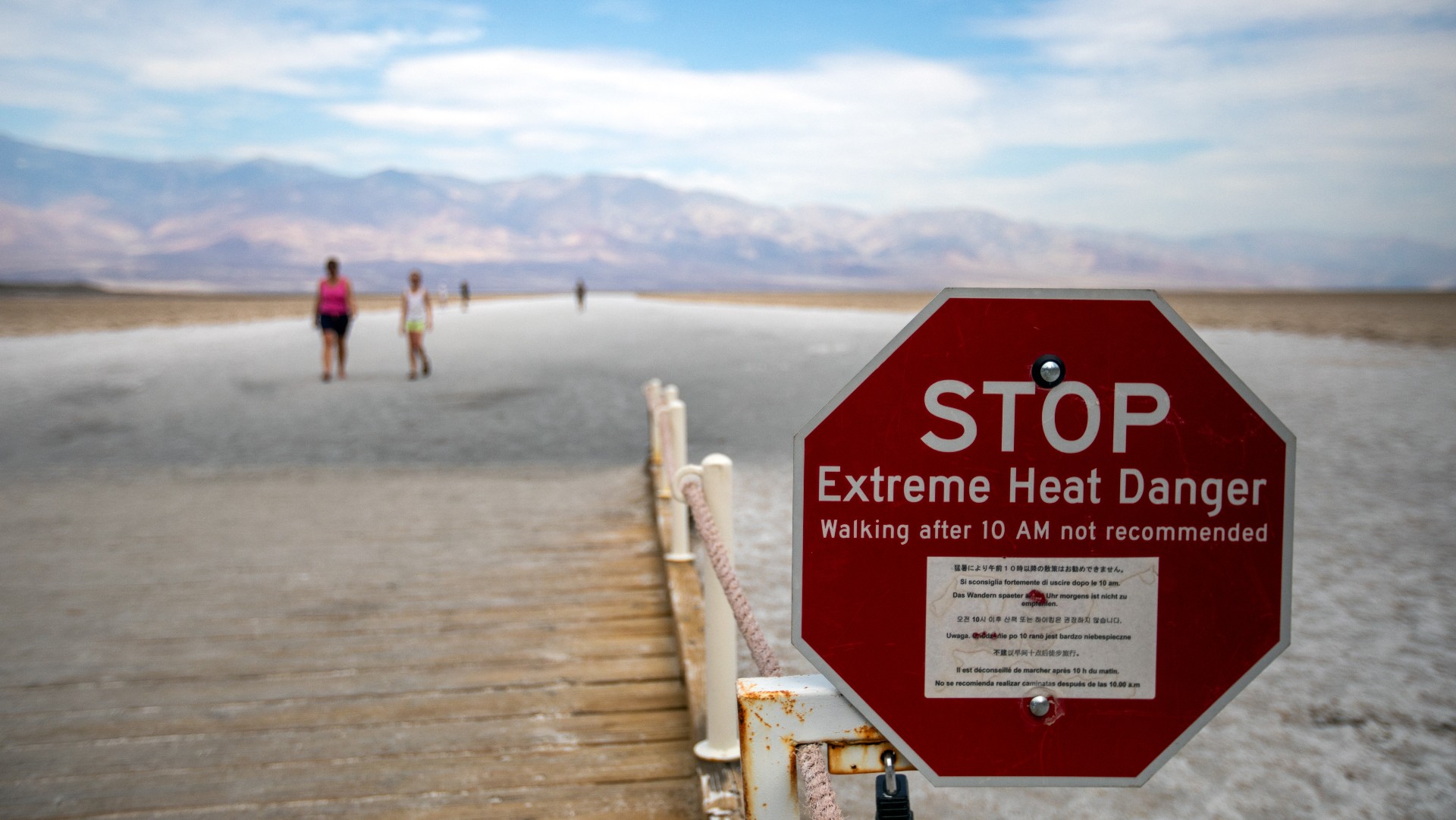The hottest July: America’s Southwest boils in the heat
Phoenix residents have suffered burns after falling on the city’s scalding roads

A free daily email with the biggest news stories of the day – and the best features from TheWeek.com
You are now subscribed
Your newsletter sign-up was successful
July was the hottest month ever recorded on Earth, said David Wallace-Wells in The New York Times – and for the residents of Arizona, it certainly felt like it.
Only on the last day of the month did the state’s capital, Phoenix, finally register a temperature high below 110 degrees Fahrenheit (43.3°C). The city’s asphalt roads reached temperatures of 180°F (82.2°C) and local burn units have been full of patients who sustained their injuries by simply falling onto the scalding ground.
Even the region’s famous saguaro cactuses are collapsing in the heat. And conditions have been similarly extreme elsewhere in the US too. There has been a rise in injuries across the Southwest from people walking outside barefoot or touching hot door handles. Meanwhile, off the Florida Keys, ocean temperatures have reached “hot-tub” levels: one sensor registered a crazy 101.1°F (38.4°C).
The Week
Escape your echo chamber. Get the facts behind the news, plus analysis from multiple perspectives.

Sign up for The Week's Free Newsletters
From our morning news briefing to a weekly Good News Newsletter, get the best of The Week delivered directly to your inbox.
From our morning news briefing to a weekly Good News Newsletter, get the best of The Week delivered directly to your inbox.
The dangers of extreme heat
“There is no denying that climate change is now a public health crisis,” said Leana S. Wen in The Washington Post. In the 1960s, America experienced an average of two heatwaves per year; now it’s six, and they’re getting worse. Extreme heat already kills more Americans than hurricanes or any other weather phenomenon. Some of those deaths are the result of heatstroke; others are caused by the exacerbation of underlying medical conditions.
Changing weather patterns are also leaving Americans vulnerable to more illnesses. Lyme disease, for instance, is spreading, and over the past few months there have been seven cases of locally acquired malaria in Florida and one case in Texas.
Heat waves are disasters
Federal leaders have yet to fully acknowledge this new reality, said the Los Angeles Times. No president, for instance, has ever issued an emergency or major disaster declaration for extreme heat. That needs to change. Federal disaster relief would provide local governments with much-needed funds to offset the costs of heat-related medical emergencies and to better protect themselves against future heatwaves.
Summer is supposed to be blissful, said Scott Simon on NPR. “School is out. Vacations are planned. We can go coatless, feel carefree.” But in the past few years, it has become a “season to fear”, with festivals, outdoor concerts and sporting events having to be cancelled because of unsafe temperatures and pollution from wildfires. Soon, we may spend most of July and August longing for winter.
A free daily email with the biggest news stories of the day – and the best features from TheWeek.com
-
 6 exquisite homes with vast acreage
6 exquisite homes with vast acreageFeature Featuring an off-the-grid contemporary home in New Mexico and lakefront farmhouse in Massachusetts
-
 Film reviews: ‘Wuthering Heights,’ ‘Good Luck, Have Fun, Don’t Die,’ and ‘Sirat’
Film reviews: ‘Wuthering Heights,’ ‘Good Luck, Have Fun, Don’t Die,’ and ‘Sirat’Feature An inconvenient love torments a would-be couple, a gonzo time traveler seeks to save humanity from AI, and a father’s desperate search goes deeply sideways
-
 Political cartoons for February 16
Political cartoons for February 16Cartoons Monday’s political cartoons include President's Day, a valentine from the Epstein files, and more
-
 Why broken water companies are failing England and Wales
Why broken water companies are failing England and WalesThe Explainer With rising bills, deteriorating river health and a lack of investment, regulators face an uphill battle to stabilise the industry
-
 The plan to wall off the ‘Doomsday’ glacier
The plan to wall off the ‘Doomsday’ glacierUnder the Radar Massive barrier could ‘slow the rate of ice loss’ from Thwaites Glacier, whose total collapse would have devastating consequences
-
 Can the UK take any more rain?
Can the UK take any more rain?Today’s Big Question An Atlantic jet stream is ‘stuck’ over British skies, leading to ‘biblical’ downpours and more than 40 consecutive days of rain in some areas
-
 As temperatures rise, US incomes fall
As temperatures rise, US incomes fallUnder the radar Elevated temperatures are capable of affecting the entire economy
-
 The world is entering an ‘era of water bankruptcy’
The world is entering an ‘era of water bankruptcy’The explainer Water might soon be more valuable than gold
-
 Climate change could lead to a reptile ‘sexpocalypse’
Climate change could lead to a reptile ‘sexpocalypse’Under the radar The gender gap has hit the animal kingdom
-
 The former largest iceberg is turning blue. It’s a bad sign.
The former largest iceberg is turning blue. It’s a bad sign.Under the radar It is quickly melting away
-
 How drones detected a deadly threat to Arctic whales
How drones detected a deadly threat to Arctic whalesUnder the radar Monitoring the sea in the air